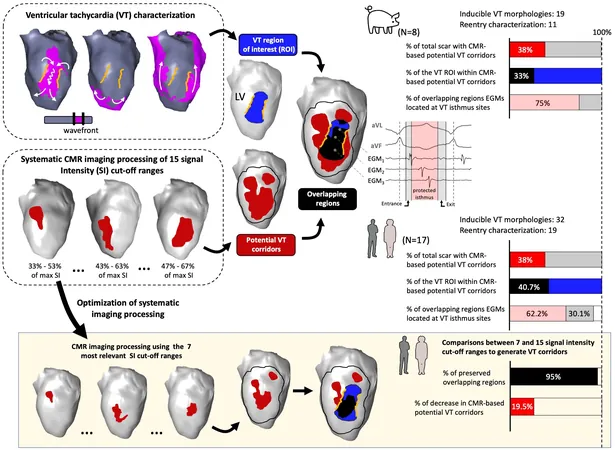
Shocking Link: Retinitis Pigmentosa Patients Face Higher Risks of Depression!
2024-09-29
Author: John Tan
A Groundbreaking Analysis
A groundbreaking analysis from Korea has unveiled a troubling reality for those diagnosed with retinitis pigmentosa (RP)—a condition marked by gradual vision loss. The study indicates that individuals with RP are far more likely to be diagnosed with depressive disorders compared to the general populace. According to the findings, approximately 18% of patients with RP—who had no prior history of depression—develop depressive disorder within a decade of their diagnosis, with a notably higher incidence observed among women and individuals aged 40 and older.
The Importance of Emotional Support
Dr. Yong Joon Kim and his research team from Yonsei University College of Medicine stress the importance of offering emotional support and social assistance for patients living with RP. The connection between visual impairment and mental health disorders is a growing concern in both medical and psychological communities, particularly as the emotional toll of sight loss can be significant.
Understanding Retinitis Pigmentosa
Retinitis pigmentosa, which affects roughly 1 in every 3,000 to 7,000 individuals, is a complex group of inherited retinal diseases. Symptoms typically manifest in early adolescence, often leading to tunnel vision and, ultimately, blindness by the fifth decade of life. The progression of this debilitating disease undoubtedly contributes to heightened risks of anxiety and depression among affected patients.
Methodology of the Study
The comprehensive cohort study reviewed data from the Korean Health Insurance Review and Assessment service from 2008 until 2022, identifying nearly 11,000 patients diagnosed with RP over the span of ten years. The research categorized subjects into age groups: under 20, between 20-39, and 40 or older.
Striking Findings
Findings reveal that the incidence rate of depressive disorders surged post-RP diagnosis, measuring 21.52 per 100,000 person-years. Alarmingly, the cumulative incidence of depression over ten years stood at 17.67% among RP patients—a striking disparity when compared to the general population.
Vulnerable Groups
Further analysis identified particularly vulnerable groups, with female patients exhibiting a 46% higher risk of depression and those aged 40 and older showing nearly double the risk. Surprisingly, younger patients, specifically those aged 20-29, were also found to have a significant risk, indicating that the emotional impacts of the disease can manifest early.
Delayed Diagnosis and Psychological Distress
As the researchers pointed out, the delayed diagnosis of retinitis pigmentosa often means that patients arrive at their first appointment already experiencing substantial vision loss. "The progressive nature of RP implies that even in its early stages, patients may endure significant psychological distress," noted Dr. Kim's team. They emphasize that untreated emotional turmoil in these patients can exacerbate their mental health challenges, potentially leading to chronic depression.
Implications for Mental Health Support
With the implications of this study being profound, it raises critical awareness about the urgent need for mental health support for those affected by visual impairments. Medical professionals are called upon to address not only the physical but also the psychological well-being of patients battling this life-altering condition. The urgency of proactive interventions cannot be overstated—retinitis pigmentosa is not just a vision problem; it can profoundly affect mental health too!



 Brasil (PT)
Brasil (PT)
 Canada (EN)
Canada (EN)
 Chile (ES)
Chile (ES)
 España (ES)
España (ES)
 France (FR)
France (FR)
 Hong Kong (EN)
Hong Kong (EN)
 Italia (IT)
Italia (IT)
 日本 (JA)
日本 (JA)
 Magyarország (HU)
Magyarország (HU)
 Norge (NO)
Norge (NO)
 Polska (PL)
Polska (PL)
 Schweiz (DE)
Schweiz (DE)
 Singapore (EN)
Singapore (EN)
 Sverige (SV)
Sverige (SV)
 Suomi (FI)
Suomi (FI)
 Türkiye (TR)
Türkiye (TR)